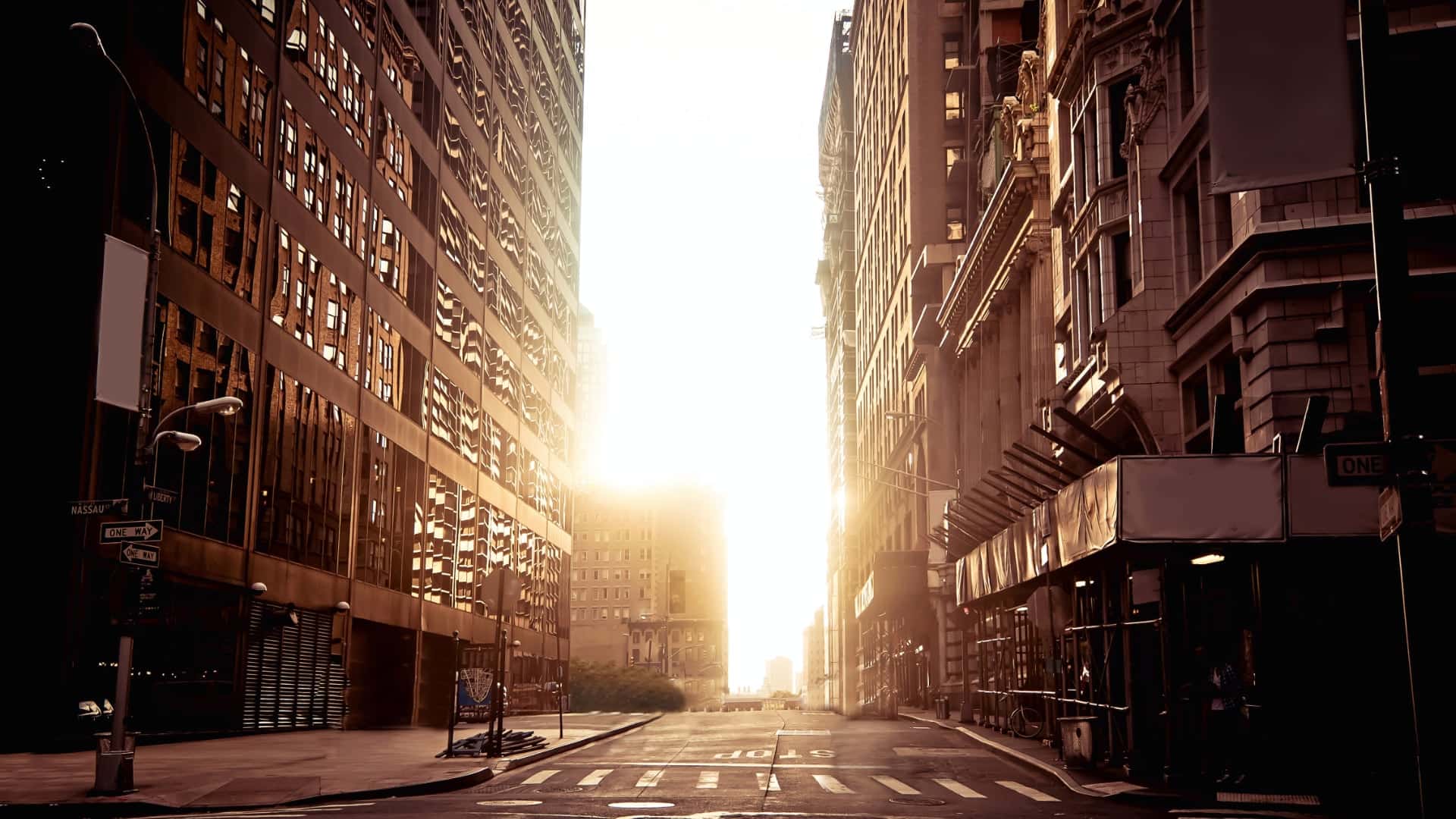Enjoy Life, Fear God (Ecclesiastes 11:7-12:8)

For 11 years, Mary Leonard of Louisville, Kentucky, has dealt with polymyositis, a rare inflammatory tissue disease that invades the muscles. There is no known cause or cure.
Mary’s case turned deadly when the disease invaded her heart. In fact, in March of 2010, Mary was told by doctors that she had 24-48 hours to live. But after 20 days in a hospice center, another 51 days in rehab, and a number of days at home, Mary is still alive. She’s now reflecting on the changes that take place when you learn your time is short.
“I call myself an average Christian,” Mary says. “I don’t know exactly why God has done this for me, but I do know that life looks different now.” She says she’s learned five life lessons as she’s grasped the brevity of life:
- Know that prayer is powerful.
- Mend fences now.
- Release the reins of life to God.
- Know that God is able—more than able.
- Put your focus on what really matters.
We’re coming to the end of the book of Ecclesiastes, a wonderful Old Testament book. As we get to the end, we’re also getting to the climax. In the passage we have before us, the Teacher is laying his cards on the table. You’ll remember that the Teacher has been exploring life and trying to find its meaning.
In the passage we have before us, the Teacher is saying to us what the doctors said to Mary: You only have a short time to live. He makes the case for this in this passage, because he knows he’s speaking to some of us who are young and who don’t believe it. Then he tells us how we should live in light of this reality.
Here’s the message of this passage: Life is short. Enjoy life while you can, and remember God. So let’s look at how he explains this. One: Life is short. Two: Enjoy life while you can. Three: remember God.
One: Life is short.
On Wednesday, June 29, elementary school kids are going to get out of school for the summer. They are going to enjoy 68 glorious days of no more pencils, no more books, no more teachers giving them the well-deserved dirty looks they’ve come to expect. You know that many of our kids live in dog years. For them the 68 days is the equivalent of years!
Many of us suffer from the reverse problem. At some point you reach the age in which you are living in reverse dog years. The summer for you is going to be the equivalent of about a week.
The issue that the Teacher is addressing in this passage is that many of us have not grasped that life is very short. We only have a very limited time. When you’re young, you don’t realize this. So he says in verses 7 and 8:
Light is sweet, and it is pleasant for the eyes to see the sun.
So if a person lives many years, let him rejoice in them all; but let him remember that the days of darkness will be many. All that comes is vanity.
You may be surprised by verse 7. Most people think the Teacher is a pessimist. In verse 7 he uses light as an image for life and says that life is good. It’s sweet! You want to enjoy life the way that you enjoy the sweetness of honey. You want to enjoy life as much as you can.
In verse 8 he continues: “So if a person lives many years, let him rejoice in them all.” Sometimes we begin to take life for granted. We can go through entire years in which we’re not really living. We’re waiting. We’re in a holding pattern. The Teacher tells us not to do this. Really live. Really engage in life.
But then he says: “let him remember that the days of darkness will be many.” This is the sobering part. He’s writing to young people who have all of life in front of them and who may be tempted to waste some years of their life because they have so many. He’s telling them that life is sweet, but is it ever short. It’s going to be over before you know it. We are mortal. Our days are few. Soon this life that we have will be over, and all of our works will fade away. Life is very short; death is long, according to verse 8. We must remember this if we are to live life wisely now.
Just in case we don’t get his point, the Teacher includes a poignant and moving description of what it’s like to get older in 12:1-8. Remember that he’s writing to young people. He even says, “Remember your Creator in the days of your youth.” Here’s the reason why. The Teacher says that there’s going to come a time when we’re not young anymore. “Die early or grow old; there is no other alternative. And yet, as Goethe said, ‘Age takes hold of us by surprise’” (Simone de Beauvoir). Here’s the problem: I want to live 90 years and die as a 30-year-old. The Teacher tells us that it isn’t going to happen. He says that one day:
- we’ll stop taking pleasure in life (12:2)
- our eyesight will diminish and we’ll long for the days when we only needed bifocals (12:3)
- Our bodies will be like a decaying old house that trembles and is weak (12:3)
- Our teeth will decay (12:3)
- Our hearing will diminish (12:4)
- We’ll be much more fearful of falling or of dangers (12:5)
- Our hair will change color if we have any (12:5)
- Our sexual desire will diminish (12:5)
- We’ll become less agile, and eventually we’ll die (12:5-7)
You try telling someone who’s young that all of this is true. The Teacher says: it is true. And when you’re young, it’s very important to understand that life is sweet, but it is also very short.
A woman went to a new doctor. She realized she had gone to school with this doctor. He was the cute guy in class that he had a crush on. She said, “I think I remember you from this school.” He looked at her and said, “You were at that school? What did you teach?” Like this doctor, the Teacher is reminding us that time is going much quicker than we think. When we are young we had better realize that life is sweet, but our time is short, much shorter than we could ever think when we’re young.
So what should we do?
Life is short. So enjoy life while you can.
How do we respond to the brevity of life? The Teacher says:
Rejoice, O young man, in your youth, and let your heart cheer you in the days of your youth. Walk in the ways of your heart and the sight of your eyes. But know that for all these things God will bring you into judgment.
Remove vexation from your heart, and put away pain from your body, for youth and the dawn of life are vanity.
This is confusing at first. On one hand, you can look at death and allow yourself to be depressed. Or, on the other hand, you can deny death and be happy. These are the two options that we normally hold out before people. Pretend you’re ageless and really live, or acknowledge the reality of death and hate everything about it. Our culture is all about this. We spend $88 billion a year trying to look younger and trying to prevent aging so that we don’t have to look at the fact that our lives are short, and that we’re farther alone than many of us would like.
But here the Teacher gives us another alternative: Look at the brevity of life and allow it to drive you to make the most of every moment. He refuses to embrace denial or cynicism and calls us to realistic joy, knowing that we have limited time and so we’d better make it count.
He commands us to rejoice; to let our hearts be glad. He calls us to “let your heart be glad in the days of your youth.” If you are young, you have a unique opportunity to put this into practice. You aren’t yet facing the problems of aging that he describes in the next chapter. Your body is strong. The future is full of possibilities. You have the freedom to take risks and to chose your direction in life. You can dream about the difference you’ll make with your life.
So he advises you to take advantage of your youth, because your youth will not last. Chase after your hopes. He even says in verse 10 that you should eliminate the things in your life that trouble your body and soul. When you’re young, again, you have the opportunity to deal with things at their early stages. We planted a little willow twig in our backyard when we moved in 20 years ago. The first little while I could have just walked up to that twig and yanked it out of the ground. Today it’s a huge tree, and it’s not going anywhere. When you’re young, deal with things and take advantage of the unique opportunities you have in life, because youth is fleeting. You won’t have a chance to do this forever.
He’s not telling us to be self-indulgent and to live as we please. But he is telling us to live joyfully in the world that God has created, knowing that we don’t have unlimited time to do so. When we’re young, it looks like we have countless days ahead of us. So the Teacher tells us to realize the opportunities aren’t unlimited. Don’t postpone the opportunities God has given you. Don’t postpone enjoyment to a future time when you, say, have your own car, finish university, are married, or have a great job. Enjoy the present!
This is a theme that comes up a lot in Scripture. Psalm 90:12 says, “So teach us to number our days that we may get a heart of wisdom.” Paul says, “Look carefully then how you walk, not as unwise but as wise, making the best use of the time, because the days are evil” (Ephesians 5:15-16).
What we don’t want is to look back at life one day and wish we lived differently when we had the chance. In his book Don’t Waste Your Life, John Piper recounts a story his father often told in his days as a fiery Baptist evangelist. It is the story of a man who came to saving faith in Jesus Christ near the end of his earthly existence. Piper writes:
The church had prayed for this man for decades. He was hard and resistant. But this time, for some reason, he showed up when my father was preaching. At the end of the service, during a hymn, to everyone’s amazement he came and took my father’s hand. They sat down together on the front pew of the church as the people were dismissed. God opened his heart to the Gospel of Christ, and he was saved from his sins and given eternal life. But that did not stop him from sobbing and saying, as the tears ran down his wrinkled face, “I’ve wasted it! I’ve wasted it!”
Don’t be that man! But even if you are, another pastor comments on this story:
By the grace of God, even a life that is almost totally wasted can still be redeemed. As the Scottish theologian Thomas Boston once said, our present existence is only “a short preface to a long eternity.” If that is true, then the man’s life was not wasted after all; he was only just beginning an eternal life of endless praise. But why wait even a moment longer before starting to serve Jesus? You have only one life to live. Don’t waste it by living for yourself when you can use it instead for the glory of God. (Phil Ryken)
Life is short. So enjoy life while you can. But there’s one more thing the Teacher tells us.
Life is short. Enjoy life while you can, and remember God.
11:9 says, “But know that for all these things God will bring you into judgment.” This doesn’t put a damper on our pursuit of joy. This isn’t a downer. Seize every moment and enjoy the gifts God has given you, but remember God in your joy. Don’t give in to irresponsible self-indulgence. See enjoyment as a gift from God. Remember God so that you can enjoy your life.
Again, 12:1 says: “Remember also your Creator in the days of your youth.” The Teacher reminds us that God is our Creator. He is the one who has given us everything that we have. He gave us life. He is the one who’s given us our family and friends. He’s created everything we have that we get to enjoy.
The problem is that it is so easy to forget the one who made us, especially when we’re young. It’s so easy to simply live for ourselves. It’s easy to forget. One of the reasons we celebrate communion so regularly is because we need to be reminded on a regular basis what Christ has done for us. We are far too quick to forget.
Life is short, so enjoy it while you can. But while you’re enjoying it, don’t forget the one who created you. The one who created you is not only your Maker but your Judge. The only way to live in light of someone who is both your Creator and Judge and who’s given you everything is to live your life in orbit around him. Center your life on him. Give your life to God now, while you still have enough passion to make a difference in the world. How much more is this true when we realize that God is not just our Maker and our Judge but also our Savior. We come to remember this morning that the one who made us and the one who will judge us is also revealed as the Triune God. God sent his Son to die for our sins, and the Son willingly came. The one who made us became the one who died for us. He’s given us this brief life in which we can enjoy the strength he’s given us to really live, knowing that our Creator and Judge is also our Savior.
Bono from U2 has written:
Ecclesiastes is one of my favorite books. It’s about a character who wants to find out why he’s alive, why he was created. He tries knowledge. He tries wealth. He tries experience. He tries everything. You hurry to the end of the book to find out why, and it says, “Remember your Creator.” In a way, it’s such a letdown. Yet it isn’t.
Bono’s right. It’s not a letdown. Getting to know your Creator, Judge, and Savior before we grow old and die is one of the most important things we can ever do. No matter how old you are, you have the opportunity to use the rest of your life beginning now, resolving to waste no more time, but to live every moment for the glory of the one who is your Creator, Judge, and Savior.
Let’s pray.
Years ago, Jonathan Edwards made these resolutions.
- Resolved, never to lose one moment of time; but improve it the most profitable way I possibly can.
- Resolved, to live with all my might, while I do live.
- Resolved, never to do anything, which I should be afraid to do, if it were the last hour of my life.
- Resolved, to think much on all occasions of my own dying, and of the common circumstances which attend death.
- Resolved, that I will do whatsoever I think to be most to God’s glory, and my own good, profit and pleasure.
Father, may we resolve today to know that life is short. And may we resolve to make the most of every moment you’ve given us. Most of all, may we resolve to live every day in light of the one who not only created us, and who will not only judge us, but who has also saved us. In the name of Jesus our Savior we pray. Amen.





